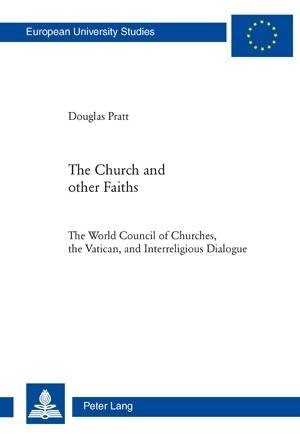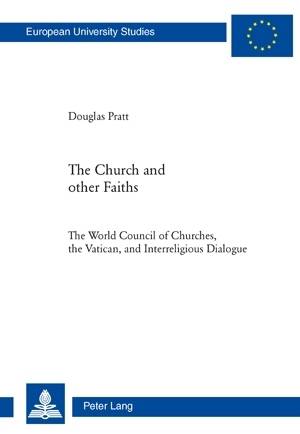
Bedankt voor het vertrouwen het afgelopen jaar! Om jou te bedanken bieden we GRATIS verzending (in België) aan op alles gedurende de hele maand januari.
- Afhalen na 1 uur in een winkel met voorraad
- In januari gratis thuislevering in België
- Ruim aanbod met 7 miljoen producten
Bedankt voor het vertrouwen het afgelopen jaar! Om jou te bedanken bieden we GRATIS verzending (in België) aan op alles gedurende de hele maand januari.
- Afhalen na 1 uur in een winkel met voorraad
- In januari gratis thuislevering in België
- Ruim aanbod met 7 miljoen producten
Zoeken
The Church and Other Faiths
The World Council of Churches, the Vatican, and Interreligious Dialogue
Douglas Pratt
€ 163,45
+ 326 punten
Omschrijving
This book investigates the coming-to-be, principal features and theological outcomes of interreligious dialogue as an activity of the World Council of Churches (WCC) and the Roman Catholic Church (Vatican). The embrace of dialogical engagement represents a dramatic departure from almost two millennia of hostile Christian regard toward other faiths. The development of this phenomenon is outlined and explored, with research focussed on the work of relevant offices of the WCC and the Vatican during the final four decades of the 20th century.
A principal task has been to construct a comparative narrative that provides the basis for a close analysis and assessment of policy and practice, together with theological reflection and critique. A hypothesis of three dimensions, or theological 'moments', that constitute a theology of dialogue has both informed and been tested by the undergirding research. The conclusion suggests that the more inclusive term 'interfaith engagement' today better encapsulates the ongoing field of concern, action, and theological reflection with respect to Christian relations to other religions, and that a model of transcendental dialogue is now requisite for the future of this engagement.
A principal task has been to construct a comparative narrative that provides the basis for a close analysis and assessment of policy and practice, together with theological reflection and critique. A hypothesis of three dimensions, or theological 'moments', that constitute a theology of dialogue has both informed and been tested by the undergirding research. The conclusion suggests that the more inclusive term 'interfaith engagement' today better encapsulates the ongoing field of concern, action, and theological reflection with respect to Christian relations to other religions, and that a model of transcendental dialogue is now requisite for the future of this engagement.
Specificaties
Betrokkenen
- Auteur(s):
- Uitgeverij:
Inhoud
- Aantal bladzijden:
- 386
- Taal:
- Engels
- Reeks:
- Reeksnummer:
- nr. 906
Eigenschappen
- Productcode (EAN):
- 9783034304542
- Verschijningsdatum:
- 24/06/2010
- Uitvoering:
- Paperback
- Formaat:
- Trade paperback (VS)
- Afmetingen:
- 150 mm x 220 mm
- Gewicht:
- 559 g

Alleen bij Standaard Boekhandel
+ 326 punten op je klantenkaart van Standaard Boekhandel
Beoordelingen
We publiceren alleen reviews die voldoen aan de voorwaarden voor reviews. Bekijk onze voorwaarden voor reviews.









